Making travel professionals for tommorow.
Joined by over 1,000 + students around the world who gained the travel industry standard knowlegde. At ITTA
its our responsibility to support students establish successful career.
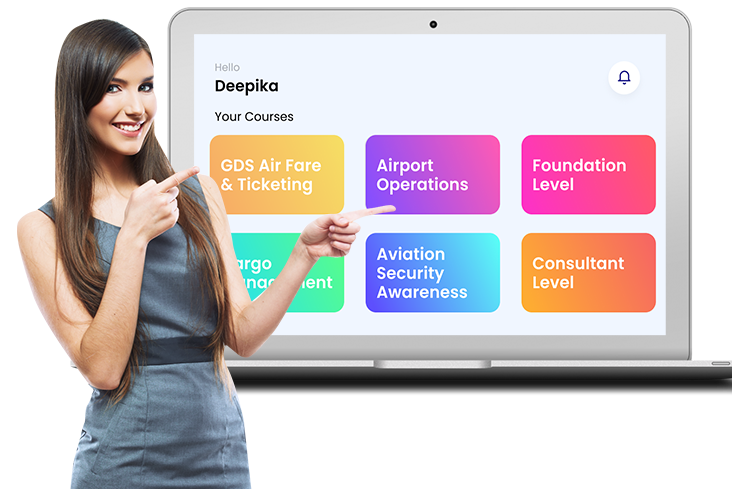

In light of COVID-19, we are offering ONLINE - LIVE CLASSES for current students as well as to the students who are joining us for a new course... Contact us for more information


BY 2024, 36 MILLION NEW AVIATION-RELATED JOBS WILL BE CREATED...... Discover the Job that fits you Best.


If a career in Travel & Tourism is your dream then we're here to bring it to reality.


Bringing a world of job opportunities in Aviation Industry. Get enrolled today.


In light of COVID-19, we are offering ONLINE - LIVE CLASSES for current students as well as to the students who are joining us for a new course... Contact us for more information

BY 2024, 36 MILLION NEW AVIATION-RELATED JOBS WILL BE CREATED...... Discover the Job that fits you Best.

If a career in Travel & Tourism is your dream then we're here to bring it to reality.

Bringing a world of job opportunities in Aviation Industry. Get enrolled today.

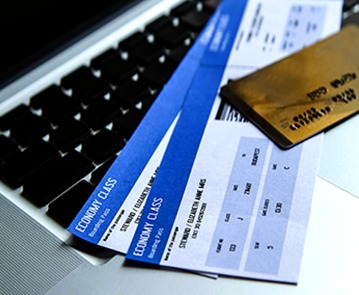
This course covers the basics and advanced airline fare construction principles, and CRS e....
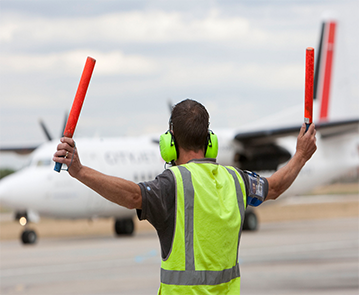
Welcome to the exciting world of airport operations! In a rapidly changing environment, ai....
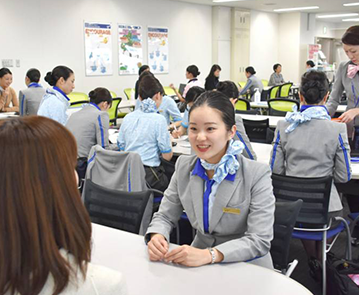
The size of the hospitality industry offers employment opportunities that compliment your ....

Every College/University aims at producing graduates ready to integrate into the job ma....
Joined by over 1,000 + students around the world who gained the travel industry standard knowlegde. At ITTA
its our responsibility to support students establish successful career.
Nearly 62 million jobs are supported worldwide in aviation & travel industry.

Occupancy in aircraft is around 80% which is greater than other form of transports.
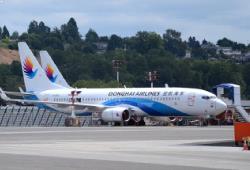
3.8 times higher aviation industry job contribution than any other industry.

First Scheduled Airline: The first scheduled commercial airline flight took place on January 1, 1914? It flew from St. Petersburg to Tampa, Florida, operated by the St. Petersburg-Tampa Airboat Line.

Longest Non-Stop Flight:The longest non-stop commercial flight is currently operated by Singapore Airlines from Singapore to New York City, covering approximately 9,537 miles and taking around 18 hours.

First Female Flight Attendant: The longest non-stop commercial flight is currently operated by Singapore Airlines from Singapore to New York City, covering approximately 9,537 miles and taking around 18 hours.

In-Flight Meals: Do you know that the first in-flight meals were served by Handley Page Transport in 1919 on flights between London and Paris? Passengers were offered a packed lunch.

First All-Jet Airline: Do you know that in 1959, American Airlines became the first airline to introduce an all-jet fleet with the Boeing 707?

Black Box Recorder: Do you know that the "black box" flight recorder, which records cockpit conversations and flight data, was invented in the 1950s by Australian scientist Dr. David Warren?

Concorde's Supersonic Flights: Do you know that the Concorde, a British-French turbojet-powered supersonic passenger airliner, could fly from New York to London in just under 3.5 hours? It operated from 1976 until 2003.

Largest Passenger Aircraft: Do you know that the Airbus A380 is the world's largest passenger airliner, with a capacity of up to 853 passengers in an all-economy class configuration?

Environmental Initiatives: Do you know that many airlines are now investing in sustainable aviation fuel (SAF) to reduce carbon emissions and combat climate change?

Airline Alliances: Do you know that the three largest airline alliances are Star Alliance, SkyTeam, and Oneworld? These alliances allow airlines to cooperate on scheduling, ticketing, and frequent flyer programs.

The shortest flight route in the world is between the Scottish islands of Westray and Papa Westray in the Orkney Islands. Where:
- Flight Distance: Approximately 1.7 miles (2.7 kilometers).
- Flight Duration: The flight typically lasts around 1.5 to 2 minutes, and can be as short as 47 seconds under favorable wind conditions.
- Operator: The flight is operated by Loganair, a Scottish regional airline.

First Flight Attendants:Do you know that the first flight attendants were male and referred to as "cabin boys" or "stewards"? The role was primarily focused on ensuring the safety and comfort of passengers.

First Female Flight Attendant:Do you know that Ellen Church, a registered nurse, became the world's first female flight attendant in 1930? She worked for Boeing Air Transport (which later became United Airlines) and helped pave the way for women in the industry.

Diverse Backgrounds:Do you know that cabin crew members come from diverse backgrounds, often speaking multiple languages and having varied previous work experiences, from hospitality to healthcare?

Rigorous Training:Do you know that becoming a cabin crew member requires rigorous training? This includes safety and emergency procedures, first aid, customer service, and sometimes even self-defense.

Medical Training:Do you know that cabin crew members are trained in basic medical procedures? They can handle medical emergencies on board, such as administering CPR, using defibrillators, and assisting with in-flight births.

Height and Physical Requirements:Do you know that many airlines have specific height and physical requirements for cabin crew? These requirements ensure that crew members can reach overhead bins and perform safety duties efficiently.

Global Workforce:Do you know that major airlines employ cabin crew members from all over the world? This global workforce helps cater to international passengers and enhances the overall flight experience.

Career Longevity:Do you know that many cabin crew members have long careers, spanning several decades? Airlines often value experienced crew members for their expertise and ability to handle diverse situations.

Strict Grooming Standards:Do you know that cabin crew members often adhere to strict grooming and uniform standards set by their airlines? This includes guidelines for hair, makeup, uniforms, and overall appearance to maintain a professional image.

Roles and Responsibilities:Do you know that the roles of cabin crew members go beyond serving food and beverages? They are responsible for passenger safety, conducting safety demonstrations, assisting with boarding and disembarkation, and handling emergency situations.

Psychological Preparedness:Do you know that cabin crew training includes psychological preparedness for handling difficult passengers, conflict resolution, and staying calm under pressure?

Cultural Sensitivity:Do you know that cabin crew members are trained in cultural sensitivity to cater to the diverse needs and expectations of passengers from different cultural backgrounds?

Evolution of Travel Agents:Do you know that the role of travel agents has evolved significantly since the early days of commercial aviation? Initially, travel agents operated as intermediaries between airlines and passengers, booking tickets manually before the advent of computerized systems.

Global Distribution Systems (GDS):Do you know that modern travel agents use Global Distribution Systems (GDS) such as Amadeus, Sabre, and Galileo to book flights, hotels, and other travel services? These systems provide real-time availability and pricing information.

Certification and Training:Do you know that many travel agents undergo certification and training programs, such as those offered by the International Air Transport Association ? These programs cover fare calculations, ticketing procedures, and airline regulations.

Complex Itinerary Planning:Do you know that travel agents are skilled in planning complex itineraries, including multi-leg journeys and round-the-world trips? They can optimize routes and find the best fares for their clients.

Fare Rules and Restrictions:Do you know that travel agents must be knowledgeable about fare rules and restrictions? This includes understanding the conditions for changes, cancellations, and refunds, as well as the implications of various fare classes.

Customer Service Expertise:Do you know that travel agents provide personalized customer service, helping clients with travel advice, visa information, and special requests? Their expertise can be invaluable in ensuring a smooth travel experience.

Crisis Management:Do you know that travel agents often assist clients in managing travel disruptions such as flight cancellations, delays, and rebooking during emergencies? Their ability to quickly find alternatives can save travelers a lot of stress.

Group Bookings:Do you know that travel agents frequently handle group bookings for corporate clients, tour groups, and special events? They negotiate group rates and manage the logistics of large-scale travel arrangements.

Commission-Based Earnings:Do you know that many travel agents earn commissions from airlines and other travel service providers? This commission-based model incentivizes them to find the best deals for their clients.

Technological Adaptation:Do you know that travel agents have adapted to technological changes by offering online booking services and using digital tools to enhance their services? Many now operate through websites, mobile apps, and social media platforms.

Specialization:Do you know that some travel agents specialize in niche markets, such as luxury travel, adventure travel, or corporate travel? Their expertise in specific areas allows them to provide tailored services to their clients.

Industry Connections:Do you know that experienced travel agents often have extensive industry connections, including relationships with airline representatives, hotel managers, and tour operators? These connections can lead to exclusive deals and perks for their clients.

Knowledge of Airline Alliances:Do you know that travel agents are well-versed in airline alliances and partnerships? They can leverage these alliances to find convenient connections and frequent flyer benefits for their clients.

Environmental Awarenes:Do you know that some travel agents promote sustainable travel options, including eco-friendly airlines and carbon offset programs? They help clients make environmentally conscious travel choices.

Inception of the Airline Industry:Do you know that the airline industry began in the early 20th century? The first commercial flights carried mail rather than passengers.

First Scheduled Airline Flight:Do you know that the first scheduled commercial airline flight took place on January 1, 1914? It flew from St. Petersburg to Tampa, Florida, operated by the St. Petersburg-Tampa Airboat Line, using a Benoist XIV biplane.

Early Aircraft:Do you know that early aircraft, such as the Wright Flyer, used in the Wright brothers' first powered flight in 1903, were made of wood and fabric and powered by small, low-powered engines? These early planes had open cockpits and very basic controls.

First Passenger Airlines:Do you know that the first passenger airlines, like Deutsche Luft-Reederei in Germany and KLM Royal Dutch Airlines in the Netherlands, began operations in the 1910s and 1920s? KLM, founded in 1919, is the world's oldest airline still operating under its original name.

Evolution of Aircraft Design:Do you know that aircraft design evolved significantly over the decades? By the 1930s, aircraft like the Douglas DC-3 featured all-metal construction, enclosed cabins, and were capable of carrying passengers over longer distances.

Introduction of Jet Engines:Do you know that the introduction of jet engines in the late 1940s revolutionized air travel? The first commercial jet airliner, the de Havilland Comet, entered service in 1952, offering faster and smoother flights compared to propeller-driven aircraft.

Boeing 707:Do you know that the Boeing 707, introduced in 1958, is often credited with ushering in the Jet Age? It could fly longer distances and at higher speeds, making international travel more accessible and popular.

Wide-Body Aircraft:Do you know that the introduction of wide-body aircraft, such as the Boeing 747 in 1970, transformed the airline industry? The 747, known as the "Jumbo Jet," could carry more than 400 passengers and significantly reduced the cost per seat mile.

Modern Aircraft:Do you know that modern aircraft, such as the Boeing 787 Dreamliner and Airbus A350, feature advanced materials like carbon fiber composites, fuel-efficient engines, and state-of-the-art avionics? These aircraft offer greater range, improved fuel efficiency, and enhanced passenger comfort.

Advancements in Technology:Do you know that today's aircraft are equipped with sophisticated technology, including fly-by-wire systems, advanced navigation aids, and in-flight entertainment systems? These advancements enhance safety, efficiency, and the overall passenger experience.

Environmental Considerations:Do you know that the airline industry is increasingly focused on sustainability? Modern aircraft are designed to reduce fuel consumption and emissions, and airlines are investing in sustainable aviation fuel (SAF) to lower their environmental impact.

Impact of the COVID-19 Pandemic:Do you know that the COVID-19 pandemic had a profound impact on the airline industry, leading to unprecedented travel restrictions, reduced passenger demand, and financial challenges for airlines? The industry is now recovering and adapting to new travel trends.

Future of Air Travel:Do you know that the future of air travel may include the development of electric and hybrid-electric aircraft, supersonic jets, and even commercial space travel? Companies like NASA, Boeing, and SpaceX are exploring these innovations.


The flexibility to learn when and where you want with full time assistance from our faculity staff.










